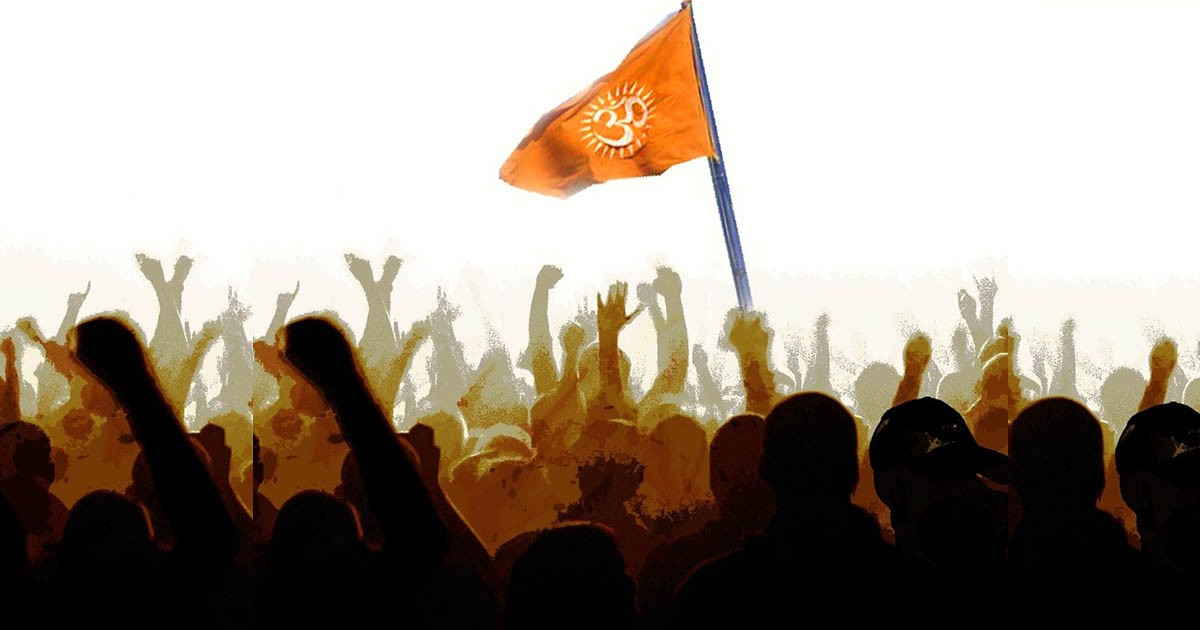By: Umar Farooq

Hindutva, like Zionism, has come to be associated with a faith. This could not have been further from the truth. Just like Isaac Herzog was not a learned Rabbi promoting the Torah, Savarkar, the founder of the Hindutva ideology, was no Hindu Pandit and was an atheist.
The Hindu faith has incorporated a plethora of beliefs and deities over the ages and has been quite the antithesis of the Hindutva ideology.
The term Hindutva has been around for a century and was coined in 1923 by V.D. Savarkar in his infamous essay Hindutva: Who is a Hindu? This was the same era that gave birth to other Fascist ideologies like Nazism and Zionism, in which the world was to be divided between them and us.
However, like Zionism, the primary purpose of rallying people around a fascist strongman ideology was never to promote the tenets of faith but their founders’ ideas. Hinduism has never been a puritan faith and is perhaps the most complex faith system known to man.
The Hindu faith has incorporated a plethora of beliefs and deities over the ages and has been quite the antithesis of the Hindutva ideology. However, for followers of the ideology, this clearly does not seem to matter, as shown by the electoral success of the BJP. In fact Savarkar wrote, “… Hindutva is not identical with what is vaguely indicated by the term Hinduism. By an ‘ism’ it is generally meant a theory or a code more or less based on spiritual or religious dogma or system. But when we attempt to investigate the essential significance of Hindutva we do not primarily — and certainly not mainly — concern ourselves with any particular theocratic or religious dogma or creed”.
Since 1996, this ideology has been the official mantra of what is now the ruling party of what is now the most populated country on the planet. This far-right movement aimed to divide people and has done so with a great degree of success.
The Nazis aimed to promote the Aryan race. Hindutva was a contemporary, and this ideology had nothing to do with the sacred texts of the Hindu faith whatsoever. After all, it was founded by an atheist. Now you might ask, what is the real aim of Hindutva if not the Hindu faith?
Contrary to what most people might think, the ideology’s founder wrote, “To every Hindu … this Sindhusthan is at once a pitribhu and a punyabhu — fatherland and a holy land. That is why in the case of some of our … countrymen, who had originally been forcibly converted to a non-Hindu religion and who consequently have inherited along with Hindus, a common fatherland and a greater part of the wealth of a common culture — language, law, customs, folklore and history — are not and cannot be recognised as Hindus. For though Hindusthan to them is fatherland as to any other Hindu yet it is not to them a holy land too. Their holy land is far off in Arabia or Palestine. Their mythology and god-men, ideas and heroes are not the children of this soil. Consequently, their name and their outlook smack of a foreign origin”.
Unlike Zionism or Nazism, which do not offer outsiders any way in. The Hindutva ideology is not aiming to conquer people from far away lands. This ideology turns neighbor against neighbour and demands that those who have left the Hindu faith should return to the fold or leave the country.
In this regard, Savarkar wrote, “Ye, who by race, by blood, by culture, by nationality possess almost all the essentials of Hindutva and had been forcibly snatched out of our ancestral home by the hand of violence — ye, have only to render wholehearted love to our common mother and recognize her not only as fatherland (Pitribhu) but even as a holy land (Punyabhu), and ye would be most welcome to the Hindu fold.”
The Hindutva movement, however, never had the same stature as the Congress party, and, in pre-partition, India even came into electoral alliances with the Muslim League!
The rise of extreme ideologies usually tends to coincide with economic distress. Nazi Germany was born from the ashes of the First World War and the economic hardships faced by the German people. The reparations and the hyperinflation of 1923. The ordinary German only turned toward Hitler in the throes of the great depression.
This is a real matter of concern. If this fringe ideology has appealed to more than one billion people while India is the fastest-growing economy in the world, what can minorities expect when things go south?
The rise of extreme right wing groups is something that is associated with failing economies and leaders trying to scapegoat some group. This has been the case from Hitler to Idi Amin. The real trouble is India is booming and it is oppressing hundreds of millions. What is to be expected if the economy goes south? The idea of mass expulsions or genocide does not seem to be too far-fetched as the conditions during the boom times indicate bad times will be much, much worse.
The writer is a freelance columnist.
